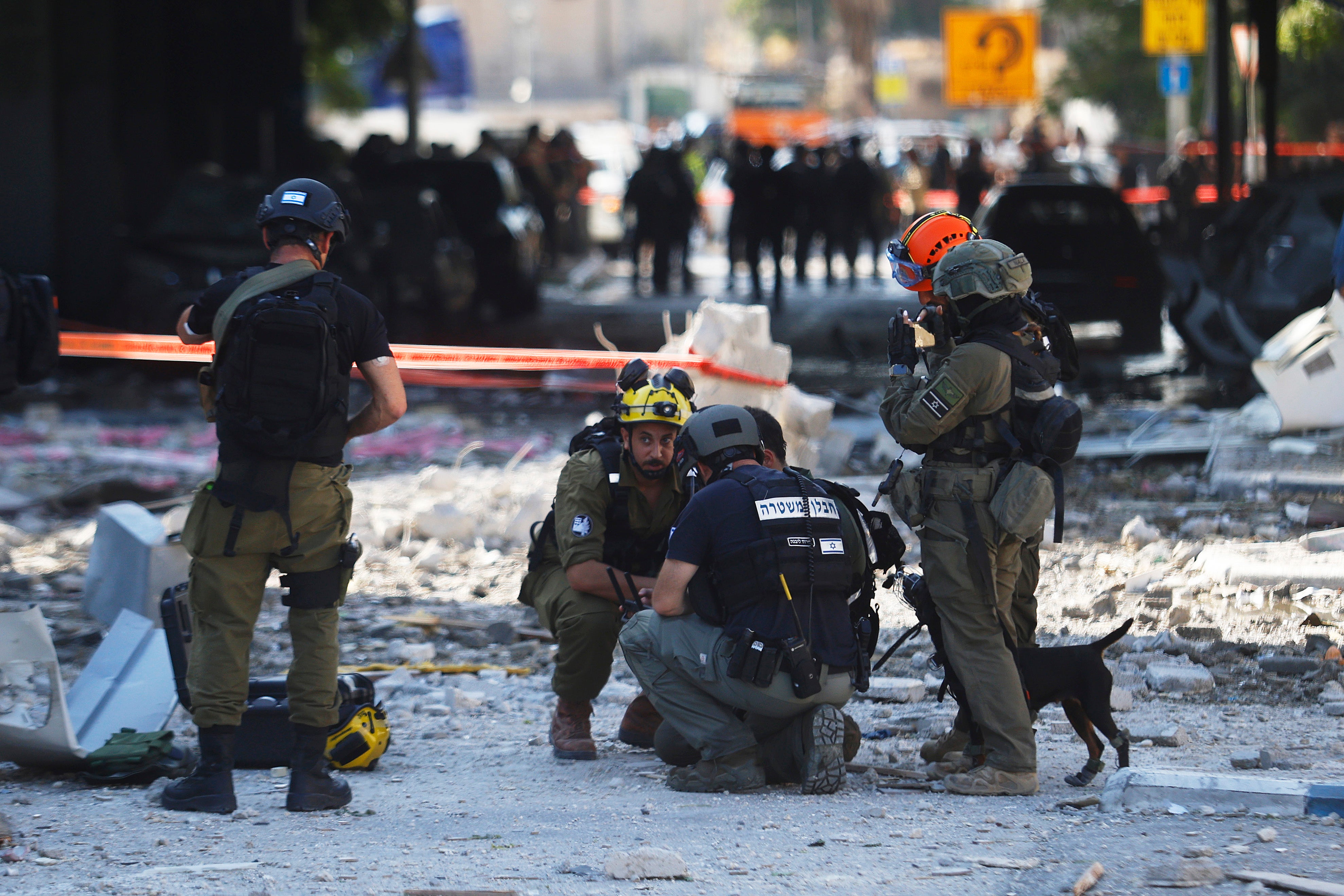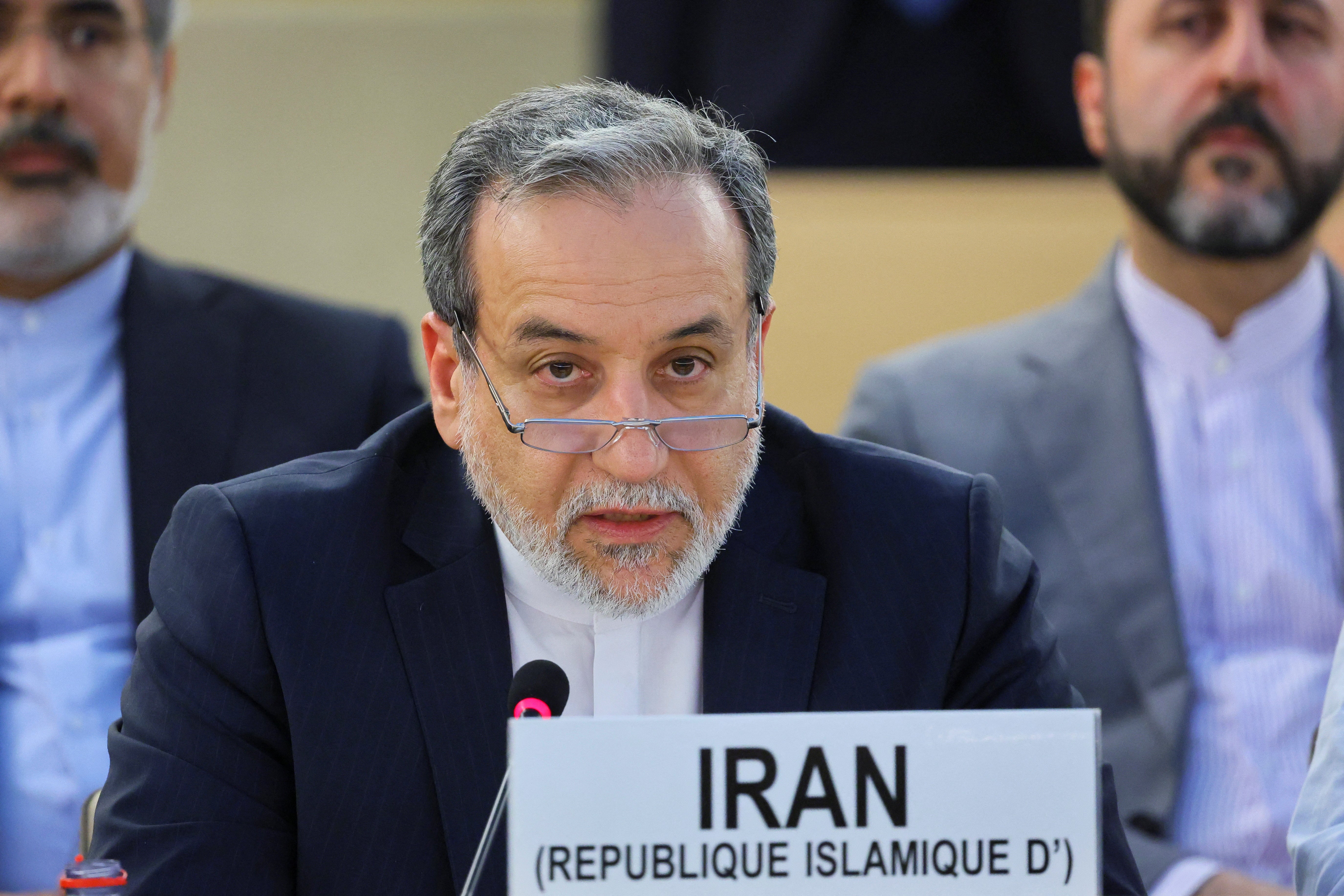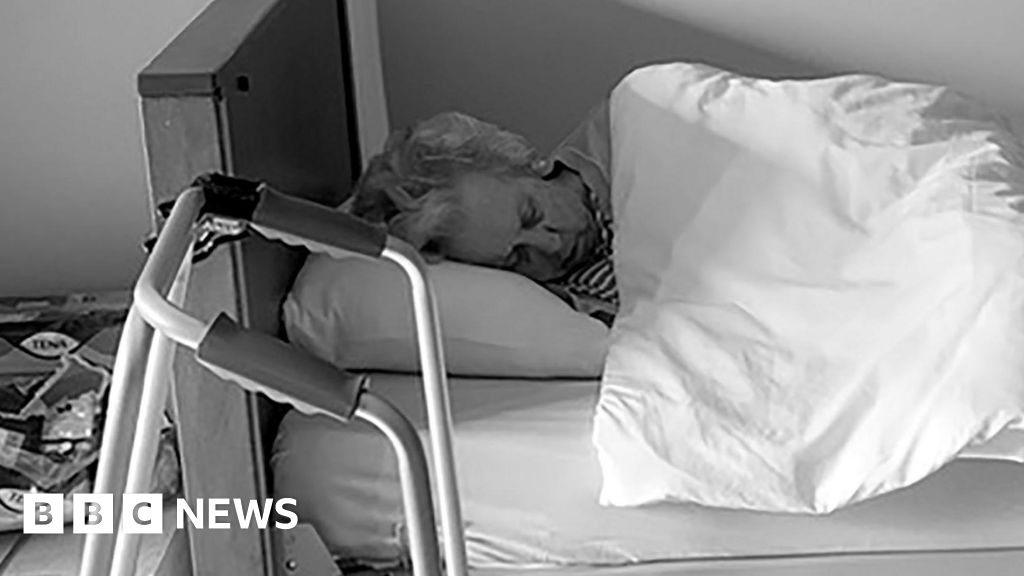Iran and Israel traded daytime missile attacks to cap a week of relentless bombing as Europe began negotiations with Tehran in an attempt to de-escalate the conflict.
Israeli emergency services reported that at least 17 people were injured, including a teenager who is in a serious condition, after Iranian ballistic missiles evaded Israel’s air-defence systems and slammed into a building near the port city of Haifa in the early afternoon of Friday.
Israel said it had conducted multiple strikes on Iran earlier in the day.
After the attack on Haifa, images from the scene showed the building in ruins as people were stretchered away.
Moments earlier, Iran’s religious ruler, Ali Khamenei, had posted on social media warning that Israel was about to see revenge. “The Zionist enemy is getting his comeuppance; he is getting his comeuppance now,” he wrote on X (formerly Twitter).
For updates on the Iran-Israel conflict – click here to visit our blog

Israel’s military issued a rare nationwide warning on social media following Ayatollah Khamenei’s post as it urged civilians to head for shelters. It later said Iran had fired around 25 ballistic missiles. Israeli cabinet secretary Yossi Fuchs said Iran had fired a total of 525 missiles at Israel over the past week. He claimed that only 25 of those missiles had breached air defences.
There were reports of additional impacts in southern and central Israel. In Tel Aviv, after authorities gave the all-clear, people emerged from bomb shelters into an early Friday evening but to none of the partying for which the city is best known. That atmosphere has vanished, blown away by Iran’s missiles and, for a minority, the growing horror at what continues to unfold in Gaza, where the Israeli military ordered Palestinians to flee Gaza City to “sheltered” areas in the west of the enclave. There are no “sheltered” or safe areas for Gaza’s populations.
Israel said it had conducted airstrikes on Iran, with more than 60 aircraft hitting what it said were industrial sites used to manufacture missiles.
It said it had hit the headquarters of Iran’s Organisation for Defensive Innovation and Research, known by its initials in Farsi, SPND. The US has previously linked that agency to alleged Iranian research and testing tied to the possible development of nuclear explosive devices.
Israel also carried out airstrikes targeting the areas around Kermanshah and Tabriz in western Iran, where the military said 25 fighter jets had struck “missile storage and launch infrastructure components”. There had been reports of anti-aircraft fire in the areas.
“We are strengthening our air control in the region and advancing our air offensive,” Israeli military spokesperson Brigadier General Effie Defrin told reporters. “We have more sites to strike in Tehran, western Iran and other places.”
Israeli airstrikes also reached into the city of Rasht on the Caspian Sea, according to Iranian media.
The Israeli military had warned the public to flee the area around Rasht’s Industrial City, southwest of the city’s downtown. But with Iran’s internet shut off to the outside world, it’s unclear just how many people were able to see the message.
The Washington-based human rights organisation Human Rights Activists News Agency (HRANA) estimates that 639 people have been killed by Israeli strikes on Iran. Israeli officials say two dozen Israelis have been killed in Iranian strikes.
The UK said it was temporarily withdrawing staff from its embassy in Iran due to the ongoing threat of strikes. The families of British embassy diplomats in Tel Aviv have also been removed as a precaution, but the officials themselves are remaining.
The attacks on each side came as Iran’s foreign minister, Abbas Araghchi, arrived in the Swiss city of Geneva for negotiations with the European Union and the UK focused on addressing allegations that Iran is enriching uranium at a dangerous level.
However, all sides failed to reach a breakthrough with Tehran.
Mr Araghch said Tehran had no interest in negotiating with the US over its nuclear programme while Israel continued attacking.
But European officials still expressed hope for future negotiations after talks ended in Switzerland on Friday. “Iran is ready to consider diplomacy if aggression ceases and the aggressor is held accountable for its committed crimes,” Mr Araghchi said.
An Israeli government official said intelligence showed that three months ago “the Iranians had the equivalent for six nuclear bombs”, but that the figure had now increased to nine.
US estimates about how close Iran is to producing weapons-grade uranium appear to be more conservative – however, on Friday night, President Donald Trump told media that he believed Iran was “weeks” away from having a nuclear weapon.

In Geneva, Mr Araghchi accused Israel of committing war crimes by bombing Tehran’s nuclear facilities, having already said prior to his arrival that he was opposed to negotiations.
“It is the Americans who want talks,” he said in comments on Thursday that were broadcast on Friday by Iranian state television. “They’ve sent messages several times – very serious ones – but we made it explicitly clear to them that as long as this aggression and invasion continues, there is absolutely no room for talk or diplomacy. We are engaged in legitimate self-defence, and this defence will not stop under any circumstances.”
He added that he expected the Switzerland talks to focus only on Iran’s nuclear programme, and that Iran’s missile capabilities were “for defending the country” and were not up for discussion.
French president Emmanuel Macron said that top European diplomats in Geneva will make a “comprehensive, diplomatic and technical offer of negotiation” to Iran as a key response to the “threat” represented by Iran’s nuclear programme.
“No one can seriously believe that this threat can be met with [Israel’s] current operations alone,” he told reporters on the sidelines of the Paris Air Show, saying some plants are heavily fortified and nobody knows exactly where all of the uranium enrichment is taking place.
“We need to regain control of [Iran’s nuclear] programme through technical expertise and negotiation.”
The United Nations secretary general Antonio Guterres, meanwhile, urged Israel and Iran to “give peace a chance”. He added in a post on social media that “the expansion of this conflict could ignite a fire that no one can control”. “We must not let that happen,” he said.




